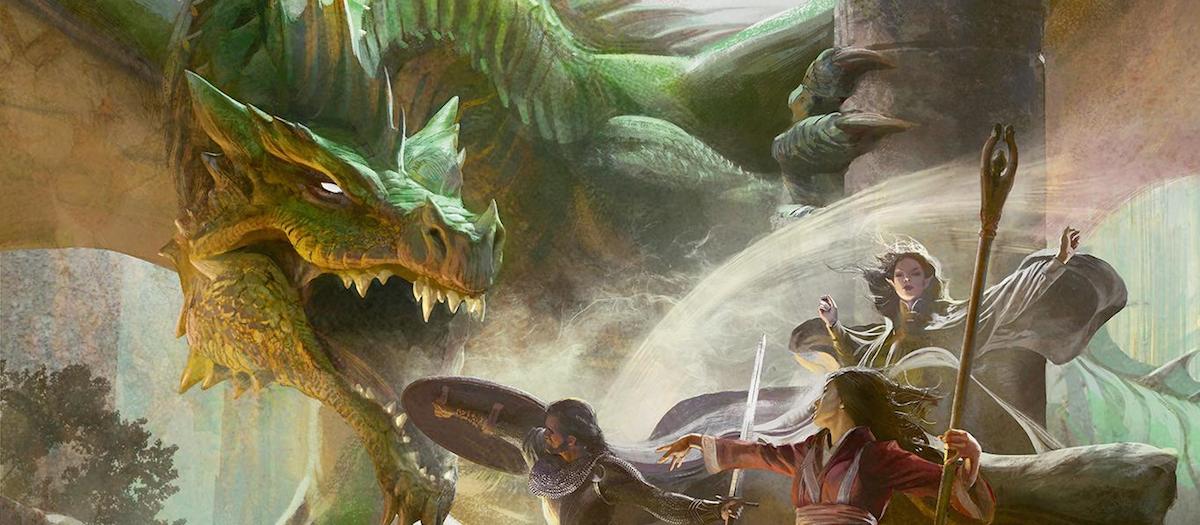
There are many reasons TTRPGs like Dungeons and Dragons have been lauded for their ability to simultaneously grant us fun and growth. Part of that reason, I think, involves all of the tenets in the the book Mindset by Carol Dweck.
In the book, the author explores tons of research involving human motivation and success. I liked this little chart here and thought how similar the growth mindset is to how we play our characters in D&D.
Unlike real life, our characters are simulations of our imagination, and often we expand our exploits way beyond how we would behave in our own life situations. But now look at the markers of a growth mindset and see how often tabletop roleplaying games match up with this mindset driving us to success in life.
A fixed mindset avoids challenges where a growth mindset embraces them.
WOW. If that isn’t D&D, I don’t know what is. In life, we avoid challenges when we are laced with shame, fear or frustration over the potential for failure. In a growth mindset, we embrace that challenge, because those three toxins are not worth the embrace that a challenge can provide. The main reason is that a growth mindset seeks to experience and learn wisdom. A fixed mindset stays home when the wizard comes knocking at your door, but a growth mindset says, “I’m going on an adventure!”

A fixed mindset gives up easily where a growth mindset persists in setback.
Again, wow! In the game, the player’s role is to determine a team goal and pursue it. But you didn’t think the villain was going to hand you the keys to the fortress? In the game, the dungeon master’s role is to provide setbacks that the players so they can practice persistence in accomplishing their pre determined goal, through all the setbacks. What I think is wild is that because the players and dungeon master agree that these are the roles, no one gets upset when the DM throws a curve ball the players’ way. It’s expected. Setbacks are encouraged and like the person who thinks with a growth mindset, they thrive off of the experience that leads to wisdom.
A fixed mindset sees effort as fruitless where a growth mindset masters
Part of the fun of the game is taking a level 1 character that begins an adventure and using the rules of the game to level up after completing an experience. Some tables use experience points, some tables use checkpoints to level up the characters, but all understand that the purpose of the game is to do better at playing your character by granting that character bonuses, rewards and features. A fixed mindset would remain static in their levels of mastery because they don’t believe it would make a difference. But then again, the fixed mindset is already avoid challenges and running away from setbacks, so why would they attempt to master their craft? The growth mindset, as you can now see, builds upon itself like a series of interconnected muscles. The growth mindset believes that every experience adds up to reward and therefore, they look for that reward. Seek and you shall find, it has been said, and when players defeat the long awaited villain, they indeed look for treasure and lo and behold, it is there. I wish to gather that gumption in my own life, that I look for the reward.
A fixed mindset ignores criticism where a growth mindset learns from it
So much can be said about criticism. When to give, where to give, how to give and more importantly how to receive. We cannot control another’s opinion, but we have agency over our reception. In the wonder of D&D, as a player, you can have a metagaming view of your character, watch them, learn from them and even criticize them from a 30,000 foot view. Yes, the player brings the criticism and not afraid because they have power to learn from their character’s weakness, flaws and mistakes. In our own lives, I believe the reason a fixed mindset avoids criticism is that we feel powerless to do anything with it. A growth mindset apprehends the criticism and uses it as a resource, for everything is a value of energy. Sit around and think about that for a while!
A fixed mindset feels threatened by the success of others where a growth mindset celebrates and becomes inspired by the success of others.

At it’s heart, D&D is a collaborative storytelling game. The rules create a party balance in which not one character has every tool and resource to beat every challenge presented by the dungeon master. Therefore, the collection of the players must celebrates the collective success because the party moves as a unit. There is no room to feel threatened, because the healer’s spellcasting might bring you back to consciousness before the axe falls upon your neck! The warrior’s rage might shield you from flying arrows! The inventor’s brilliance might bring about the answer the entire party needs in a split second. A growth mindset is required to play the game well.
Those who continue to operate in a fixed mindset eventually see their fate as determined and their agency stripped to a life of doom. Flipping into a growth mindset is the answer to bring about the agency, the free will and the empowerment one needs to achieve and succeed. By playing Dungeons and Dragons, with a growth mindset, we can simulate real life situations with imagination. In doing so, I think we will find ourselves “leveling up” in real life, because lessons are transferable. It’s that easy. May your story continue.
